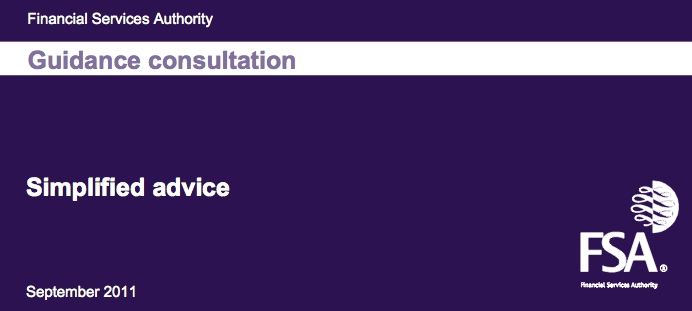The Financial Services Authority says it sees no reason for a lower qualification for simplified advice.
In its Simplified Advice guidance which was released this week, the FSA rejected suggestions from the British Bankers’ Association and the Association of British Insurers that simplified advice should be subject to lower qualification requirements
The FSA says: “We have asked for detailed information on the specifics of the advice process and the role of the individual which would justify a lower qualification requirement.
“We have not been convinced of the need for, or desirability of, a partially qualified or less competent adviser to give personal recommendations through a simplified advice process.”
The FSA has outlined three options for firms wishing to offer simplified advice.
These are advice through an automated advice system, individuals who give personal recommendations and individuals who do not give personal recommendations.
Any individuals offering personal recommendations will need to comply with adviser charging rules and be qualified to QCF level four.
They must also maintain 35 hours of continued professional development per year and hold a Statement of Professional Standing.
Firms which are not giving personal recommendations must ensure they have strict systems to avoid staff straying into offering regulated advice.
The FSA says: “The individual will need to avoid making any judgement on the suitability of one or more products. Even if the support of an individual would be viewed as generic advice when considered in isolation, the combination of generic advice and the recommendation of a particular financial instrument by simplified advice process may well mean the individual is being viewed as giving regulated advice.”
However the FSA said this would be difficult for firms to regulate.
“We consider it will be particularly difficult for a firm to manage the risk that an individual will give advice if they are talking to clients through the process, either over the phone or in a face-to-face situation, as opposed to providing ad-hoc help at the request of a client.”
• Want to receive a free weekly summary of the best news stories from our website? Just go to home page and submit your name and email address. If you are already logged in you will need to log out to see the e-newsletter sign up. You can then log in again.

